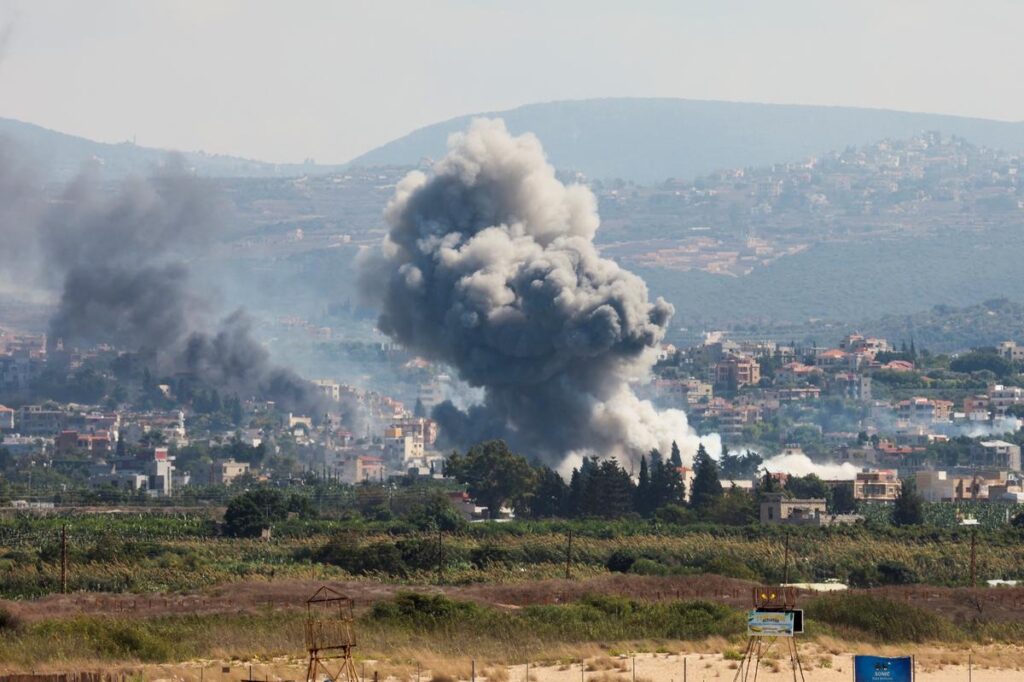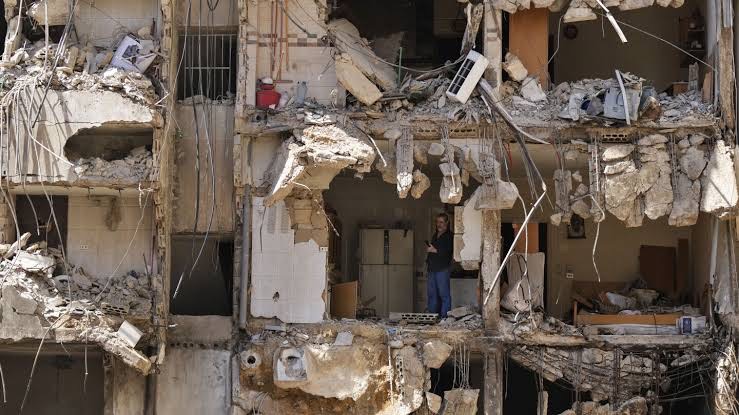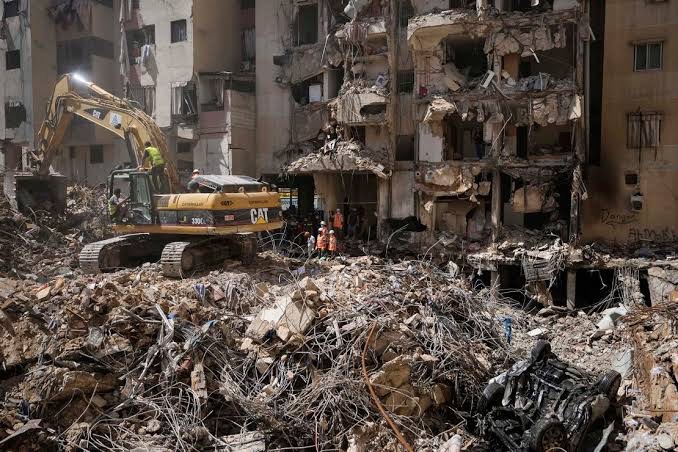By Remilekun Awokoya
At least 492 people were killed, and 1,600 others injured in Israeli airstrikes across Lebanon on Monday, marking the deadliest assault since the 2006 conflict.
Thousands of families have fled their homes as Israel’s military intensified its offensive, striking 1,300 Hezbollah assets across Lebanon, with more to come, according to military spokesperson Daniel Hagari.
Among the targets were “cruise missiles” with ranges of hundreds of kilometers, mid-range rockets reaching up to 200 kilometers (more than 124 miles), and rockets with explosive warheads, Hagari said in a press briefing.
“These are all strategic munitions which Hezbollah had positioned at the heart of villages, within civilian homes, intending to launch them to harm Israeli citizens,” Hagari explained.

He also referenced “heavy rockets” like the one involved in the July tragedy in Majdal Shams, in which 12 children were killed. While Israel blames Hezbollah for that attack, the group denies responsibility.
Hagari indicated more updates would follow on the number of militants killed in the strikes.
Lebanon’s Health Ministry confirmed the death toll of 492, which includes 35 children and 58 women. The ministry also reported 1,645 injuries, as strikes continued in southern Lebanon, Beqaa, and Baalbek.
In a televised address, Israeli Prime Minister Benjamin Netanyahu urged Lebanese civilians to “get out of harm’s way” as Israel targets Hezbollah, clarifying that Israel’s fight is with the Iran-backed militant group, not the Lebanese people.
Netanyahu warned that Israel is shifting the “balance of power” on its northern front, with the military “preparing for the next phases” following the ongoing airstrikes.

Amidst escalating tensions and growing fears of a broader regional war, Hezbollah’s second-in-command declared “a battle without limits,” as the group launched its deepest strikes into Israel in decades.
In response, Israel’s Foreign Minister called on the United Nations Security Council (UNSC) to condemn Hezbollah’s attacks, particularly the strike on Haifa.
In a letter to UNSC President Samuel Zbogar of Slovenia, Israel urged strong condemnation of Hezbollah’s “relentless attempts to destabilize the region.”
Israel’s Iron Dome intercepted several rockets over Haifa on Monday, as shown in videos verified by CNN.
The airstrikes and counterattacks come as world leaders gather in New York for the UN General Assembly (UNGA), with the escalating violence in the Middle East dominating the discussions.
However, a clear strategy to prevent the crisis from spiraling into a wider regional conflict remains elusive.

Israel has consistently called on the UN to condemn Hezbollah’s actions, even as it carries out military responses to the group’s attacks.